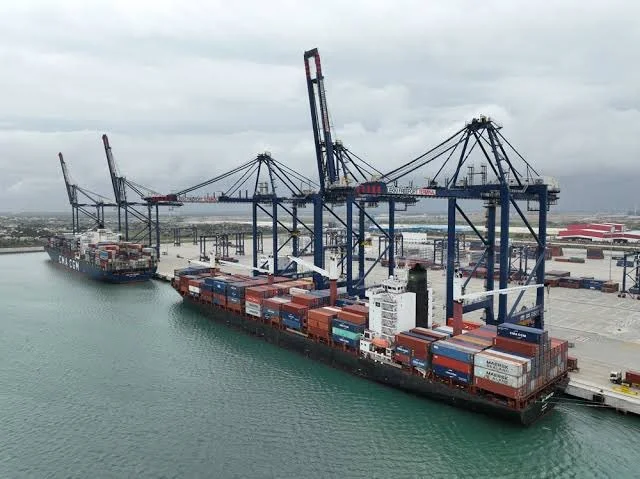The Nigeria’s Minister of Marine and Blue Economy, Adegboyega Oyetola, has revealed that the Lekki Deep Seaport will generate over $200 billion in government revenue during its 45-year concession period.
Speaking at a breakfast meeting in Lagos, organized by the Nigerian Chamber of Shipping in partnership with Lekki Port, Oyetola explained that the port is already transforming trade and reducing congestion in Lagos and other ports.
Lekki Port’s Role in Trade Growth
Since operations began, Lekki Port has eased pressure on existing ports, strengthening Nigeria’s position as a regional logistics hub. According to Oyetola, cargo now moves faster thanks to new access roads built by the Federal Government, Lagos State, and private partners.
These improvements have boosted trade efficiency and restored investor confidence. Even at 20% capacity, the port contributes significantly to Nigeria’s economy while offering vast opportunities for investors and operators.
A Replicable Model for Nigeria’s Ports
Oyetola described Lekki Port as a model built on five pillars:
- Strategic location with regional access
- Public–private partnership framework
- Integrated transport by road, rail, and waterways
- Supportive policies and incentives
- Technology-driven operations
He added that the Federal Government plans to replicate this model nationwide by modernising Apapa Port and upgrading the Eastern Ports in Onne, Calabar, and Rivers State.
Economic Impact and Future Outlook
According to Wang Qiang, Managing Director of Lekki Port, the facility could generate $201 billion in taxes, duties, and royalties. Its economic impact is projected at $361 billion over 45 years, more than 200 times its construction cost.
Qiang also noted that the port’s Post-Panamax cranes can unload ships twice as fast, cutting waiting times and lowering logistics costs. This efficiency positions Lekki as a regional maritime hub, helping Nigeria reclaim business previously lost to other West African nations.
Industry Response
The Nigerian Ports Authority (NPA) and the Nigerian Chamber of Shipping praised the project, calling it a game-changer for Nigeria’s trade, shipping industry, and blue economy agenda.






















